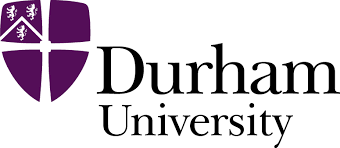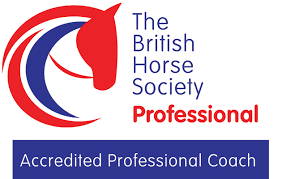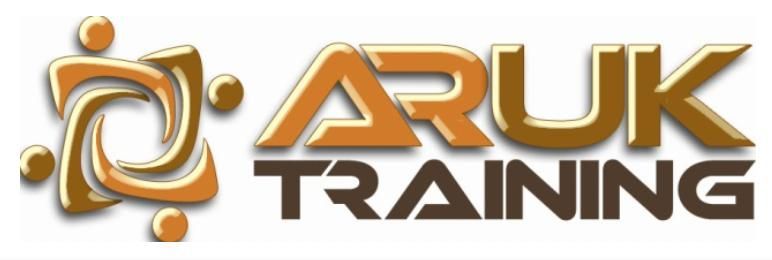
Agile Project Management Outlines
Course ID: 2512080101013ESH
Course Dates : 08/12/25 Course Duration : 5 Studying Day/s Course Location: London, UK
Language: Bilingual
Course Category: Professional and CPD Training Programs
Course Subcategories: Leadership and Management Excellence
Course Information
Introduction
Agile Project Management has emerged as one of the most effective methodologies for managing dynamic and complex projects across various industries. It offers a flexible approach to project execution, emphasizing iterative progress, collaboration, and responsiveness to change. Unlike traditional project management techniques, Agile fosters an adaptive mindset that empowers teams to deliver value incrementally while maintaining high levels of productivity and innovation.
The framework of Agile is built on the principles of customer-centricity, transparency, and continuous improvement. These principles allow organizations to align their project outcomes with business goals and stakeholder expectations. Through Agile, teams can break down large, intricate projects into manageable segments, enabling faster delivery cycles and continuous feedback integration. This iterative approach ensures that risks are minimized, and the project remains aligned with evolving priorities.
One of the greatest strengths of Agile Project Management is its versatility. Whether it’s software development, product design, or operational improvement, Agile practices can be tailored to suit diverse project needs. It promotes collaboration across cross-functional teams, ensuring that everyone involved has a clear understanding of the project’s objectives and contributes to its success. Agile creates a shared sense of ownership and accountability, which is instrumental in achieving high-performing teams.
This course on Agile Project Management is designed to equip participants with the essential knowledge, skills, and tools to lead and manage projects successfully using Agile methodologies. Participants will gain a deep understanding of Agile frameworks such as Scrum, Kanban, and SAFe, as well as practical techniques for applying these frameworks in real-world scenarios. By mastering Agile principles, attendees will be able to drive project efficiency, stakeholder satisfaction, and team engagement.
The training also focuses on developing leadership and communication skills that are critical in Agile environments. Agile leaders are not just managers but facilitators who create an empowering and collaborative environment. This course will prepare participants to inspire teams, resolve conflicts, and navigate challenges effectively while fostering a culture of agility and innovation.
Whether participants are new to Agile or seeking to refine their expertise, this course offers a comprehensive exploration of Agile practices and their transformative impact on project delivery. It is tailored to ensure that attendees leave with actionable insights and a clear roadmap for implementing Agile in their respective organizations.
Objectives
By attending this course, participants will be able to:
Understand the core principles and values of Agile methodologies and their application in project management.
Learn to effectively plan, execute, and monitor Agile projects using frameworks like Scrum, Kanban, and SAFe.
Develop strategies for managing project scope, time, cost, and quality in an Agile context.
Facilitate collaboration among cross-functional teams to enhance communication, transparency, and accountability.
Identify and mitigate risks proactively while adapting to changes and evolving requirements.
Foster a culture of continuous improvement and innovation within project teams and organizations.
Master the tools and techniques for Agile project tracking, reporting, and performance evaluation.
Apply Agile leadership skills to empower teams and drive successful project outcomes.
Who Should Attend?
This course is ideal for:
Project managers, team leaders, and professionals transitioning from traditional to Agile project management.
Business analysts, product managers, and developers seeking to enhance their understanding of Agile methodologies.
Senior executives and decision-makers aiming to foster an Agile culture within their organizations.
Professionals working in dynamic industries such as IT, product development, marketing, and operations.
Individuals preparing for Agile certifications such as Certified ScrumMaster (CSM) or PMI-ACP.
Teams and organizations looking to improve collaboration, efficiency, and customer satisfaction through Agile practices.
Training Method
• Pre-assessment
• Live group instruction
• Use of real-world examples, case studies and exercises
• Interactive participation and discussion
• Power point presentation, LCD and flip chart
• Group activities and tests
• Each participant receives a 7” Tablet containing a copy of the presentation, slides and handouts
• Post-assessment
Program Support
This program is supported by:
* Interactive discussions
* Role-play
* Case studies and highlight the techniques available to the participants.
Daily Agenda
Daily Schedule (Monday to Friday)
- 09:00 AM – 10:30 AM Technical Session 1
- 10:30 AM – 12:00 PM Technical Session 2
- 12:00 PM – 01:00 PM Technical Session 3
- 01:00 PM – 02:00 PM Lunch Break (If Applicable)
- Participants are expected to engage in guided self-study, reading, or personal reflection on the day’s content. This contributes toward the CPD accreditation and deepens conceptual understanding.
- 02:00 PM – 04:00 PM Self-Study & Reflection
Please Note:
- All training sessions are conducted from Monday to Friday, following the standard working week observed in the United Kingdom and European Union. Saturday and Sunday are official weekends and are not counted as part of the course duration.
- Coffee and refreshments are available on a floating basis throughout the morning. Participants may help themselves at their convenience to ensure an uninterrupted learning experience Provided if applicable and subject to course delivery arrangements.
- Lunch Provided if applicable and subject to course delivery arrangements.
Course Outlines
Fundamentals of Agile Project Management
Introduction to Agile principles, values, and the Agile Manifesto.
Key differences between Agile and traditional project management.
Overview of popular Agile frameworks: Scrum, Kanban, and SAFe.
Building an Agile mindset: Embracing adaptability and customer focus.
Day 2:
Planning and Initiating Agile Projects
Techniques for developing a project vision and roadmap.
Defining roles and responsibilities in Agile teams (Product Owner, Scrum Master, Team Members).
Creating a product backlog and prioritizing requirements.
Estimation techniques: Story points, T-shirt sizing, and planning poker.
Day 3:
Agile Execution and Delivery
Managing sprints: Sprint planning, execution, and reviews.
Effective daily stand-up meetings: Tips and common challenges.
Agile metrics: Tracking progress with burndown charts and velocity.
Handling changes and re-prioritization during the project lifecycle.
Day 4:
Leadership and Collaboration in Agile Environments
Agile leadership skills: Facilitating team performance and empowerment.
Enhancing communication and collaboration among cross-functional teams.
Resolving conflicts and building trust within Agile teams.
Engaging stakeholders and ensuring their alignment with project goals.
Day 5:
Continuous Improvement and Scaling Agile
Conducting effective retrospectives for continuous improvement.
Agile tools and software: Jira, Trello, and other project management platforms.
Scaling Agile for large organizations: SAFe, LeSS, and Nexus frameworks.
Developing an action plan for implementing Agile in your organization.



















































